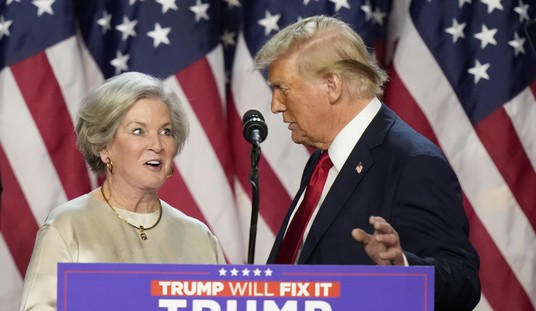WASHINGTON -- Secretary of Education Arne Duncan, like many liberals, seems afflicted by Sixties Nostalgia Syndrome, a longing for the high drama and moral clarity of the civil rights era. Speaking in Alabama at Selma's Edmund Pettus Bridge on the 45th anniversary of the "Bloody Sunday" march, Duncan vowed to unleash on public schools legions of lawyers wielding Title VI of the 1964 Civil Rights Act. They supposedly will rectify what he considers civil rights violations, such as too many white students in high school advanced placement classes.
Duncan said "the civil rights struggle" has become "more complex since the days of Selma." He seems not to understand that today's complexities of equity are complex because they are not about "rights."
He says his rights enforcers -- 600 of them, with a $103 million budget -- will "remedy discrimination," such as students being "treated unequally" by policies that have what is called a "disparate impact" on certain groups. For example, Duncan asks: "How can we assure that low-income Latino and African-American students get the same access to a college-prep curriculum, AP classes and college as other students?" But "access" obscures the problem.

The Supreme Court has held that Title VI bans "disparate treatment," meaning intentional discrimination such as denying access to minorities, not policies that have a "disparate impact" on minorities. No policy denies minority or low-income students "access" to AP classes.
The pertinent lesson of the 1960s is the futility of casting today's problems of social class, as Duncan does, in the anachronistic categories of the civil rights era. In 1966, the seismic Coleman Report concluded: "Schools are remarkably similar in the way they relate to the achievement of their pupils when the socioeconomic background of the students is taken into account." (Emphasis added.)
Recommended
Plainly put, the best predictor of a school's performance is family performance -- qualities of the families from which the students come. Subsequent research suggests that about 90 percent of the differences among the proficiency of schools can be explained by five factors: days absent from school, hours spent watching television, pages read for homework, the quantity and quality of reading matter in the home -- and the presence of two parents in the home.
If Duncan is looking for the high SAT scores that correlate with, and often are consequences of, AP courses, he should look for schools where educated parents are intensely involved with their children. The best predictor of SAT scores is family income, which generally correlates with family structure -- two parents in the home. Family structure is pertinent to the 9/91 factor -- between their births and their 19th birthdays, children spend 9 percent of their time in school and 91 percent elsewhere. For many children, elsewhere is not an intact family.
Government can do next to nothing about family structure, which is why it is pointless for Duncan to suggest that "access" is why "the door to college still does not swing open evenly for everyone." It will not so swing as long as 71.6 percent of African-American children and 51.3 percent of Latino children are born to unmarried women. The political class flinches from talking about those numbers, preferring to take refuge behind talk about "rights." But those numbers go far to explain numbers that Duncan does cite: White high school graduates are twice as likely as black or Latino graduates to have taken AP calculus classes. The political system cannot candidly discuss, let alone cope with, the reasons why, for example, there are few if any high-performing inner-city school systems.
Duncan seems to fancy himself an Earl Warren, expanding civil rights. Actually, he resembles Mrs. Jellyby.
While his lawyers seek evidence of displeasing enrollments in AP courses, he is complicit in strangling the scholarship program that enables 1,300 District of Columbia low-income minority students to escape from D.C.'s execrable schools. Like Mrs. Jellyby in Dickens' "Bleak House," who was indifferent to her chaotic family while fretting about conditions in distant Borrioboola-Gha, Duncan practices what Dickens called "telescopic philanthropy." Sensitive about supposed injustices in distant AP classes, Duncan is worse than merely indifferent to children within sight of his office at the foot of Capitol Hill.
No segregationist politician is blocking schoolhouse doors against D.C. children; congressional Democrats are. Until Duncan and the talkative president he serves speak against the congressional Democrats who are strangling D.C.'s Opportunity Scholarship Program, he should spare us the exhibitionism of explaining problems of social class in the Sixties vocabulary of civil rights violations.

























Join the conversation as a VIP Member